82 F. high in the Twin Cities Monday.
72 F. high on May 26.
60 F. high on May 26, 2013.
May 26, 1930: Great Empire Builder Tornado. A
direct hit derailed famous train in Norman County.
"
...Yet
it seems to me, that given the scientific evidence, and with the future
of the planet at stake, anyone denying the existence of man-made
climate change, is demonstrably not fit to be president." - from an Op-Ed by former ABC News correspondent Barrie Dunsmore. Details below.
Cabin Combat
I admire people who are good with their hands, able to build and repair things with little effort.
I am not one of those people. I have trouble using a can opener.
For
20 years I was baffled why people would battle 2, 3, even 4 hour
commutes to their cabins. "We have lakes in the metro!" It dawned on me
that disconnecting from TV & WIFI, then reconnecting as a family up
north, no distractions, was a tonic for the soul.
We've had a
place on Pelican Lake for 11 years. In that time I've broken toes in a
horrible mulching accident and had painful tetanus shots after stepping
on rusty nails. Last year I almost cut off a finger laying down pavers. I
should have bought a cabin next to Urgent Care. A small price to pay
for our little slice of heaven.
The forecast for the metro area
turned out nicer than expected, which is better than the other way
around. A few pop-up instability storms fire today, then a surge of warm
air aloft keeps the atmosphere "capped" and dry Wednesday into Saturday
AM.
Memorial Day marks the kick-off of summer, and Mother Nature
will obey, with a streak of 80s likely. Weekend storms give way to
cooler weather next week.
Perfect weather to repair my deck.
Uh oh.
Rainfall Estimates as of 10 PM Monday.
Much of the immediate Twin Cities metro missed out on rain yesterday,
although the western suburbs saw some .5 to 1" rainfall amounts, based
on NWS Doppler estimates. As much as 2-3" fell from near St. Cloud to
Glenwood and Long Prairie, a band of very heavy rain over the far
northern suburbs and Lake Mille Lacs area.
Tornado Damages Trailers at North Dakota man camp.
At least 15 trailers associated with fracking in western North Dakota
were severely damaged by a tornado late Monday. Details from
The Washington Post.
84 Hour Future Radar.
NOAA's 12 km NAM model shows numerous showers and T-storms east of the
Mississippi River; more showery rains from the Pacific Northwest into
the northern Rockies. Dry weather prevails over the southwestern USA.
Animation: HAMweather.
7-Day Rainfall Estimates.
NOAA models show as much as 5-7" of rain over the Lower Mississippi
Valley, where widespread flash flooding is possible this week. Some 1-3"
amounts are possible from the Dakotas and Minnesota east to Pittsburgh.
Thursday at 4 PM.
NAM guidance from NOAA shows highs topping 100F over the Dakotas by
Thursday afternoon, summerlike heat expanding across the central USA,
while the Pacific Northwest and Mid Atlantic region is stuck in the 60s.
Map: HAMweather.
Alaska Wildfire is Bigger than Chicago.
Newser has an update on the massive blaze; here's an excerpt: "
A
huge fire burning in Alaska's Kenai National Wildlife Refuge has
exploded in size and now covers 243 square miles—an area bigger than the
city of Chicago. The Funny River fire in the heavily forested reserve
south of Anchorage is just 30% contained and authorities have ordered
the evacuation of around 1,000 structures, the AP
reports. The fire isn't unusually big by Alaska standards, a state
spokeswoman says, but it is occurring much earlier in the year than
usual; unusually dry conditions, accompanied by high winds, are helping
the blaze to spread..."
Photo credit above: "
A helicopter dumps water on a portion of the Funny River Fire, Sunday,
May 25, 2014, in the Funny River community in Soldotna, Alaska. The
wildfire that has spread through the forest of Alaska's Kenai Peninsula
has expanded in size, prompting authorities to order the evacuation of
1,000 structures, officials said." (AP Photo/Peninsula Clarion, Rashah McChesney).
*
The blaze on Alaska's Kenai Peninsula, south of Alaska, grew to 218
square miles as of late Monday. More details on the expanding Alaskan
wildfire from
The Star Tribune.
El Nino Update.
The probability of going from ENSO-neutral to an El Nino warming phase
in the Pacific rises to 65% this summer, peaking close to 80% by late
fall and early winter. Details from
NOAA CPC.
2014 El Nino Intensity Predictions. The
consensus forecast
calls for a roughly 1 C warming with the El Nino event underway. Most
(but not all) El Ninos correspond with cooler, wetter weather over
Minnesota and the Upper Midwest during the summer, but a bias toward
drier, warmer weather during autumn and winter.
Oklahoma Mesonet, Celebrating It's 20th Anniversary, Had It's Roots in the 1984 Tulsa Flood.
I didn't realize this was the case, but major weather tragedies often
spur new technologies and innovations. Here's an excerpt from a story at
Tulsa World: "...
On
May 26-27, 1984, a stalled cold front dumped six to 15 inches of rain
on the Tulsa area, leaving 14 people dead and causing $180 million in
damage. The storm took many in the area by surprise. From Tulsa’s
tragedy came an idea to have information beyond just airport radar sites
that were updated on an hourly basis, said Howard L. Johnson, retired
associate state climatologist with the Oklahoma Climatological Survey..."
Map above:
Oklahoma Climatological Survey and Mesonet.
Easing Your Child's Fear of Severe Weather.
KSTP-TV
Meteorologist Jonathan Yuhas has some good advice and a helpful video
for parents trying to help children respect the weather, without living
in constant fear or paranoia, here's an excerpt: "
Jonathan suggests
having a severe weather plan in place before the storm. "You'd want to
have extra keys for your house and for your car, you'd want to have
extra food for your kids and water for everyone as well," Jonathan said.
Also, he suggests having a cellphone and charger, cash, a credit card
and a blanket. He also said talk to your kids about their fears.
Jonathan suggests going to the library with them and reading a book or
two about severe weather. "This offers a safe environment to teach your
kids more about severe weather,” Jonathan said..."
MIT Finds New Way to Harvest Energy from Heat.
Gizmag has the curious (and promising) details; here's an excerpt: "
Researchers
at MIT and Stanford have found a new way to transform waste heat into
electricity, particularly in situations where the temperature gradient
is small, below 100º C (180° F). The technology uses widely available
materials, and could be used to recycle the large amounts of wasted heat
generated in industrial processes and electric power plants. According
to the US Environment Protection Agency (EPA), one third of the
industrial energy consumption in the United States is wasted as heat. If
we could get even a small portion of it back, we'd be able to decrease
power consumption significantly..."
File photo: Utah Geological Survey.
 Solar Panels Drains The Sun's Energy, Experts Say
Solar Panels Drains The Sun's Energy, Experts Say. I have a hunch this is parody. Well played,
National Report. Here's an excerpt of this important "scientific" breakthrough: "...
Solar
panels destroying the sun could potentially be the worst man-made
climate disaster in the history of the world, and Halliburton will not
be taking part in that,” the company stated in a press release issued
Friday morning. “It’s obvious, based on the findings of this neutral
scientific research group, that humans needs to become more dependent on
fossil fuels like oil and coal, not less. Because these so-called
`green technologies’ are far more dangerous to the Earth than any
hydrofracking operation or deep-water drilling station. What good is
clean air when our very sun is no longer functional?”
TODAY: Some sun, stray T-storm. Winds: SW 7. Dew point: 64. HIgh: 82
TUESDAY NIGHT: Evening thunder, then slow clearing. Low: 64
WEDNESDAY: Hazy sun, definitely feels like summer. High: 85
THURSDAY: Sticky sun, almost hot. Dew point: 63. Wake-up: 65. High: 87
FRIDAY: An early July. Still muggy. Dew point: 65. Wake-up: 66. High: 88
SATURDAY: AM sun, heavy PM T-storms likely. Wake-up: 68. High: 85
SUNDAY: Strong storms, some clearing late? Wake-up: 66. High: 81
MONDAY: Sunny, less humid. Dew point: 57. Wake-up: 61. High: 78
Climate Stories...
Climate Change Helping Hybridization Between Native, Invasive Trout Species: USGS Study. Implications for Minnesota's lakes? Here's an excerpt from
Nature World News: "
Researchers
at the USGS along with colleagues at the University of Montana and
Montana Fish, Wildlife & Parks found that change in temperature has
accelerated hybridization between native westslope cutthroat trout and
introduced rainbow trout. Experts have predicted that warmer
temperatures will help invasive fish grow and form hybrids with native
fish. The study is published in the journal Nature Climate Change..."
Hoping for a Rational Climate Change Discussion. Here's a line of reasoning that made perfectly good sense to me, in a story at
Energy Trends Insider. Here is a clip: "...
My
position is that I hope those on the side of “little impact” are
correct, but we need to plan and prepare to the greatest extent possible
for the possibility that they are not. One of the things I do
professionally is risk assessment and mitigation. In fact, we all do it
to some extent. For example, we may believe that the probability that
our homes will burn down is low, but the consequences are so severe in
the event that it happens that we pay for homeowner’s insurance. So for
low risk but high consequence events, we have insurance. Even if you
don’t believe future climate model projections, would you concede that
there is a chance you are wrong? Do you think there is a 1 percent
chance you are wrong? Do we have planetary insurance in the event you
are wrong?..."
"A Climate Crisis Is Also A Health Crisis". Here's a snippet of an Op-Ed that caught my eye in
The New York Times: "...
Millions
of Californians now rely on groundwater contaminated by agricultural
runoff and industrial chemicals. Drought-related dust and wildfires
intensify asthma, respiratory diseases and Valley Fever. Less
agricultural production means poorer nutrition, fewer jobs and higher
food prices for the entire country. A climate crisis is also a health
crisis, and we must first direct solutions and resources to our most
vulnerable and already affected communities..."
GOP In Grip of Climate Change Denial.
No kidding, in fact some wear it as a badge of honor. Let's ignore the
science, data and facts, and make up our own competing narrative, one
that won't bite the hand that feeds. Here's a clip from an Op-Ed at
Rutland Herald Online: "...
Now
just why is it that nearly every Republican presidential wannabe has
decided that climate change is not real? It is very hard not to conclude
it’s all about the money. Since the Supreme Court opened the floodgates
to virtually unlimited campaign contributions, often secretly donated,
significantly more than a billion dollars will be needed to get elected
president in 2016. And Republican candidates expect to receive much of
their money from the oil, gas and coal industries — who by curious
coincidence, just don’t happen to recognize climate change either..." (Image above: NASA).
University of Miami Geologist in Trenches of Climate Change. The
implications of rising seas are especially bleak for southern Florida,
where denial is rapidly giving way to action. Here's an excerpt from a
story at
The Miami Herald: "...
But
Wanless contends that softening predictions is irresponsible. In
typical fashion, his warning comes in stark terms. “The truth is out
now. Our tenure on low-lying parts of South Florida is coming to an end.
You buy down here at your own peril,” he said. “If communities and
governments aren’t fairly warning people, they are at massive risks for
lawsuits because the reality is here.”
*
graphic above: Florida Center for Environmental Studies. Featured in an article at
WLRN, "Why Handwringing about Sea Level Rise Won't Save Miami."
Greenland Ice May Melt Even Faster.
Watch for more "unknown unknowns", otherwise known as tipping points.
Satellite and radar data is discovering what's really going on beneath
Greenland's rapidly melting ice sheet. Here's a clip from a story at
Climate News Network and
truthdig.com: "
Just
days after US researchers identified geophysical reasons why West
Antarctica’s glaciers are increasingly vulnerable to global warming, a
partner team has pinpointed a related cause for alarm in Greenland. Many
of the bedrock crevices and canyons down which the island’s glaciers
flow have basements that are below sea level. This means that as warm
Atlantic waters hit the glacier fronts, the glaciers themselves become
more vulnerable to global warming and increasingly likely to melt at a
faster rate..."
Photo credit above: "
Melting away: an aerial view of the margin of Greenland’s threatened ice sheet." Photo by Hannes Grobe/Alfred Wegener Institute via Wikimedia Commons.
Who Are The "Alarmists" Here? Real Conservatives Value Evidence. Barry Bickmore presents his argument at Utah's
Deseret News; here's an excerpt that caught my eye: "...
So
who is being “hysterical” and “alarmist?” On one hand, we have people
using all the best scientific, political and economic analyses —
complete with estimates of uncertainty and risk — to come up with
recommendations on how to solve a pressing problem in the most
cost-effective manner. On the other hand, we have self-proclaimed
“conservatives,” supposed champions of personal responsibility,
neglecting to obtain even a cursory familiarity with the best
scholarship on the topic, blaming our inaction on what they assume
(without evidence) China will do, extolling the unlimited capacity of
humans to solve problems while excusing the present generation from even
trying, and shrieking overwrought, nonsensical warnings about what
serious climate action will cost..."
Read more here: http://www.miamiherald.com/2014/05/24/4136597/university-of-miami-geologist.html#storylink=cpy
Thomas Friedman: Climate Change Needs Urgent Action. Should future generations get a vote....today? Here's a clip from an Op-Ed at
Times Union: "...
Even
if we can't know what future citizens will actually value and believe
in, we can still consider their interests, on the reasonable assumption
that they will somewhat resemble our own (everybody needs breathable
air, for example)," wrote Wells in Aeon Magazine. Since "our ethical
values point one way, towards intergenerational responsibility, but our
political system points another, towards the short-term horizon of the
next election," we "should consider introducing agents who can vote in a
far-seeing and impartial way..." (Image: NASA).
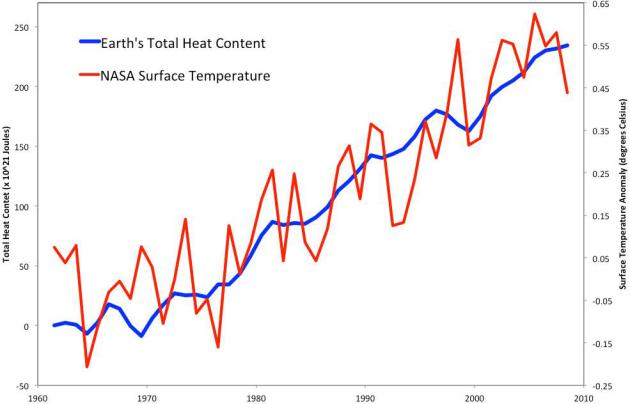

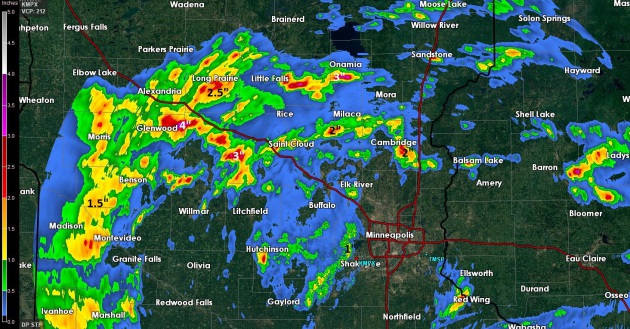
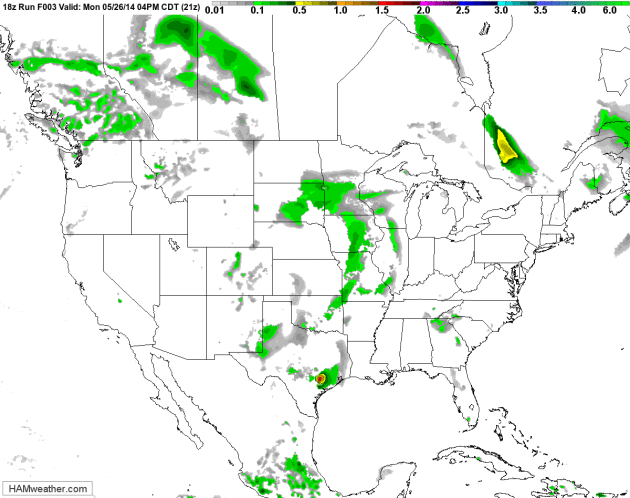
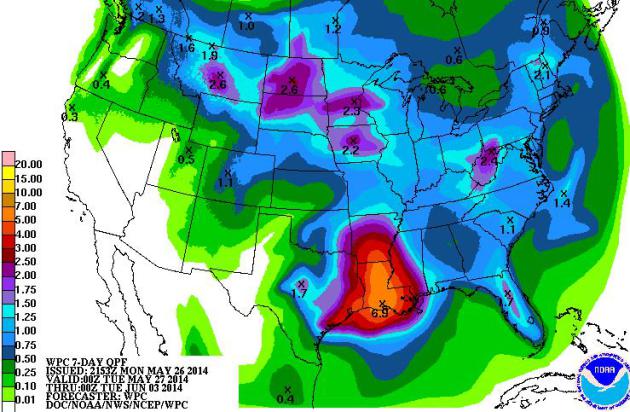
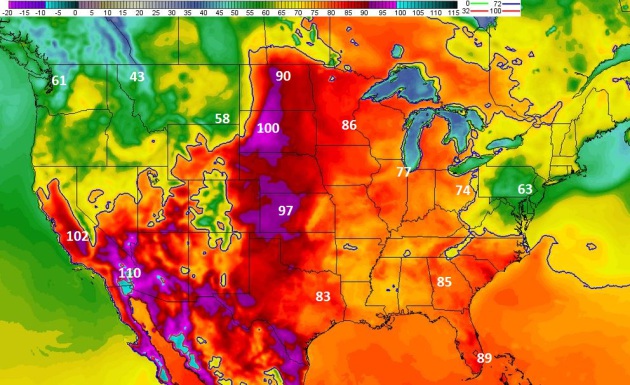
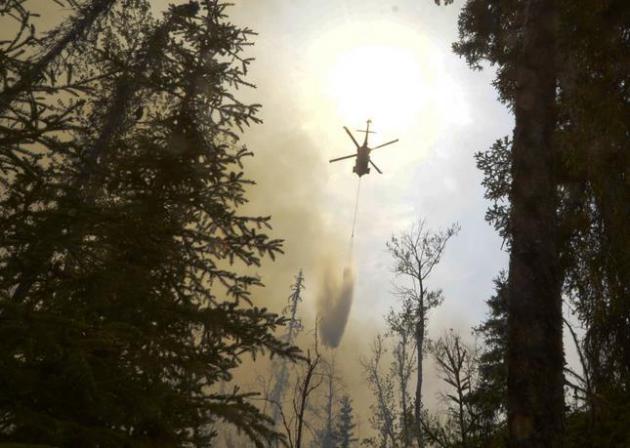
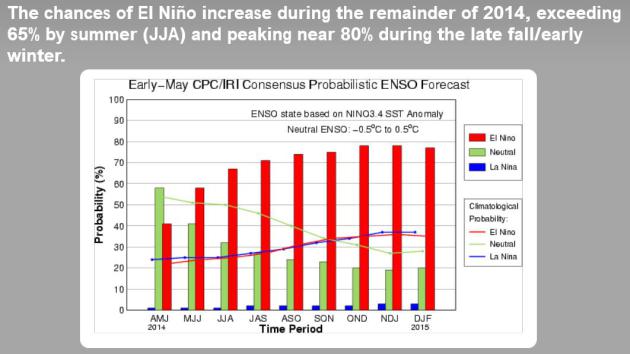
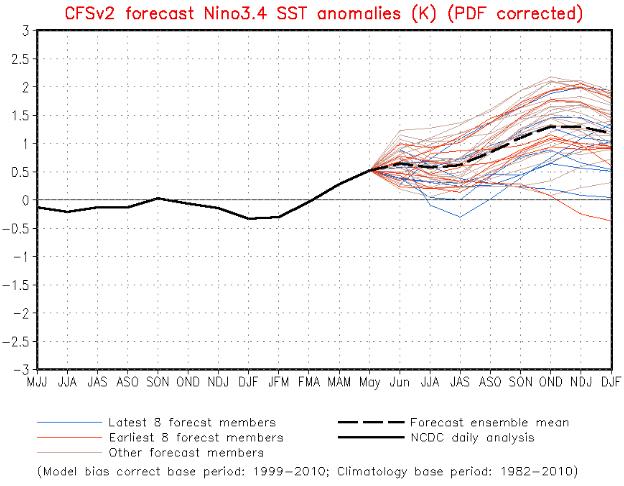
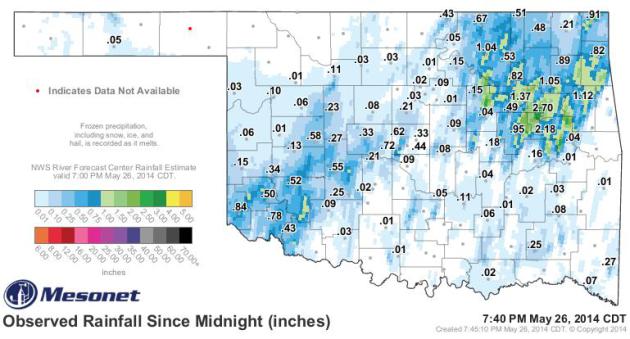

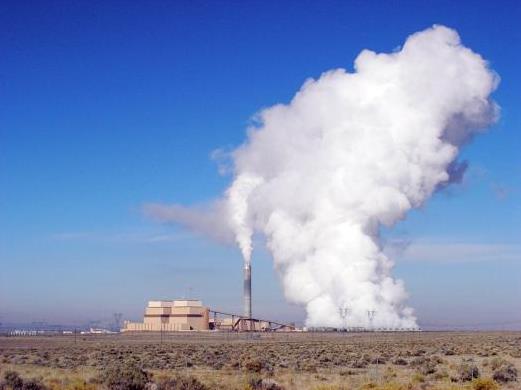

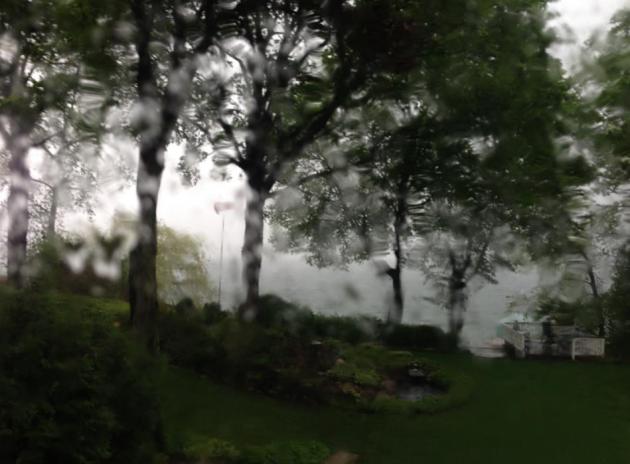
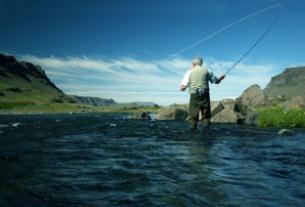

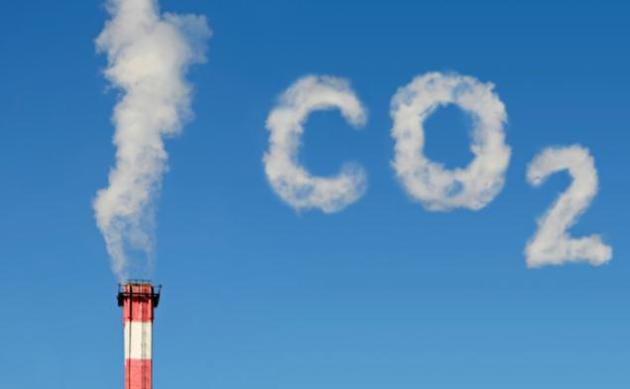

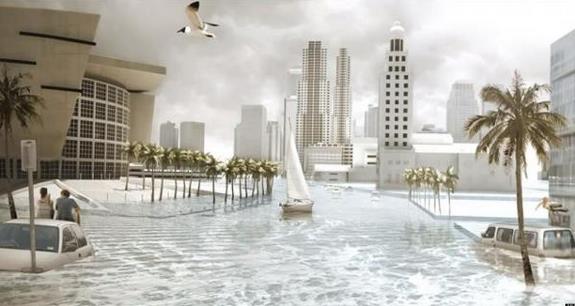
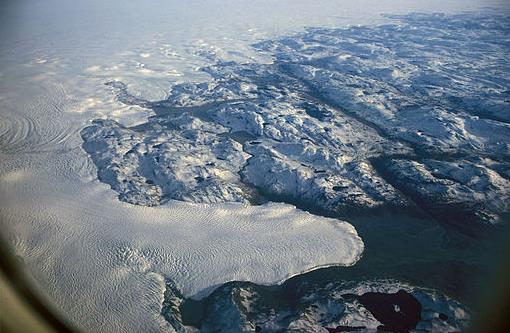
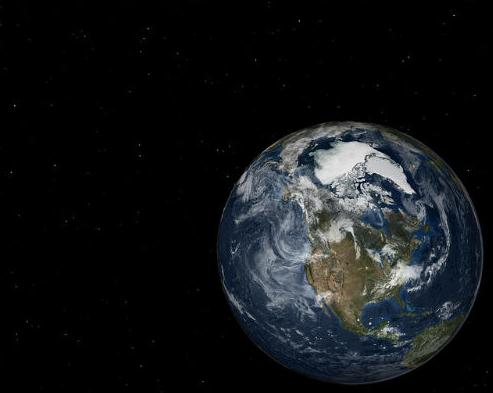
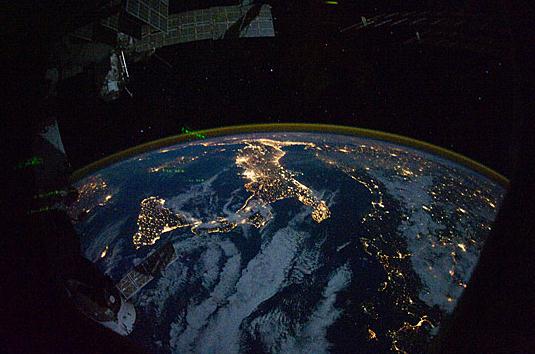
No comments:
Post a Comment